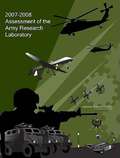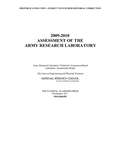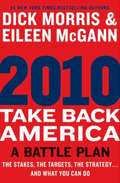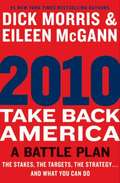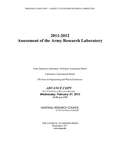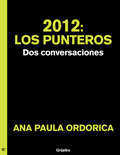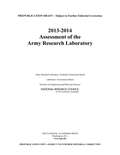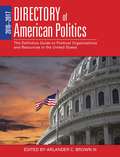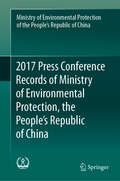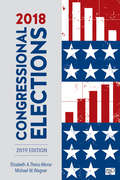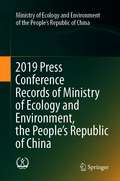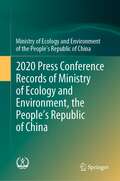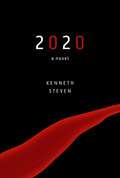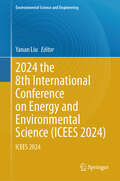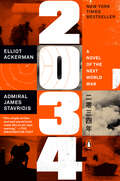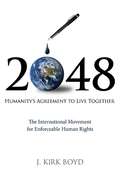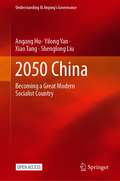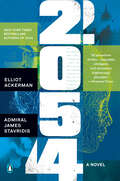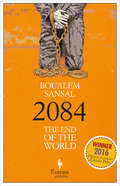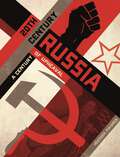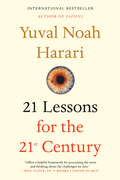- Table View
- List View
2007-2008 Assessment of the Army Research Laboratory
by National Research Council of the National AcademiesThis volume is the latest in a series of biennial assessments of the scientific and technical quality of the Army Research Laboratory (ARL). The current report summarizes findings for the 2007-2008 period, during which 95 volunteer experts in fields of science and engineering participated in the following activities: visiting ARL annually, receiving formal presentations of technical work, examining facilities, engaging in technical discussions with ARL staff, and reviewing ARL technical materials. The overall quality of ARL's technical staff and their work continues to be impressive, as well as the relevance of their work to Army needs. ARL continues to exhibit a clear, passionate concern for the end user of its technology--the soldier in the field. While two directorates have large program-support missions, there is considerable customer-support work across the directorates, which universally demonstrate mindfulness of the importance of transitioning technology to support immediate and near-term Army needs. ARL staff also continue to expand their involvement with the wider scientific and engineering community. This involvement includes monitoring relevant developments elsewhere, engaging in significant collaborative work (including the Collaborative Technology Alliances), and sharing work through peer reviews. In general, ARL is working very well within an appropriate research and development niche and has been demonstrating significant accomplishments.
2009-2010 Assessment of the Army Research Laboratory
by National Research Council of the National AcademiesThe charge of the Army Research Laboratory Technical Assessment Board (ARLTAB) is to provide biannual assessments of the scientific and technical quality of the research, development, and analysis programs at the Army Research Laboratory (ARL). The advice provided in this report focuses on technical rather than programmatic considerations. The Board is assisted by six National Research Council (NRC) panels, each of which focuses on the portion of the ARL program conducted by one of ARL's six directorates. When requested to do so by ARL, the Board also examines work that cuts across the directorates. The Board has been performing assessments of ARL since 1996. The current report summarizes its finding for the 2009-2010 period, during which 96 volunteer experts in fields of science and engineering participated in the following activities: visiting ARL annually, receiving formal presentations of technical work, examining facilities, engaging in technical discussions with ARL staff, and reviewing ARL technical materials. The Board continues to be impressed by the overall quality of ARL's technical staff and their work and applauds ARL for its clear, passionate concern for the end user of its technology--the soldier in the field--and for ARL's demonstrated mindfulness of the importance of transitioning technology to support immediate and longer-term Army needs. ARL staff also continue to expand their involvement with the wider scientific and engineering community. In general, ARL is working very well within an appropriate research and development (R&D) niche and has been demonstrating significant accomplishments.
2010: A Battle Plan
by Dick Morris Eileen McgannThis book call to arms for concerned Americans-a timely and important book that takes aim at Obama's health care debacle, unemployment, the exploding deficit, Democratic-controlled Congress that would tear down our freedoms while building up a Socialist state.
2010: Take Back America
by Dick Morris Eileen McgannCasting your vote in the november 2010 election may be the single most important thing you do all year. Because these elections Will be the critical turning point for america's future. They're our chance to take back america. We stand at the crossroads of ideals and policies: freedom versus socialism; sovereignty versus international subservience; economic liberty versus debt slavery; quality medical care versus government-sponsored euthanasia; and private property versus confiscatory taxation. All this depends on the answer to one question: Will Obama maintain his control of Congress? To prepare us for this battle, Dick Morris and Eileen McGann have written 2010: Take Back America, their most important book yet. In Fleeced, they warned of the dangers of an Obama administration. In Catastrophe, they predicted his campaign to promote a socialist economy. And now, in this book, they offer a battle plan to take back America. Morris and McGann explain the stakes -- permanent unemployment, rampaging inflation, international control of our economy, collapse of our manufacturing industry, European-style taxation levels, and a nation without quality medical care at any price. They point out the targets -- the incumbent Democrats who are most vulnerable. They identify the races we must win and offer ammunition to do so. They examine the records of Harry Reid, Blanche Lincoln, Arlen Specter, Kirsten Gillibrand, and Barbara Boxer -- the key incumbent targets for 2010. And they tell you all the secrets these incumbents hope you won't find out. They outline a strategy for victory -- explaining the pitfalls and walking us through a path to winning control of Congress. And then they tell us what we can do as individuals to defeat Obama -- how to go beyond the traditional work of donating, local campaigning, and voting, and build our own electronic precincts to get people engaged and spread the word between now and Election Day. Today politics is no longer a spectator sport; Morris and McGann explain how to get off the bleachers and get out on the field, using everything from e-mail to blogs, YouTube, Facebook, and Twitter to get the message out. The battle is coming. 2010: Take Back America is the basic training manual you need to win.
2011-2012 Assessment of the Army Research Laboratory
by National Research Council Division on Engineering and Physical Sciences Laboratory Assessments Board Army Research Laboratory Technical Assessment BoardThe charge of the Army Research Laboratory Technical Assessment Board (ARLTAB) is to provide biennial assessments of the scientific and technical quality of the research, development, and analysis programs at the Army Research Laboratory (ARL). The ARLTAB is assisted by six panels, each of which focuses on the portion of the ARL program conducted by one of ARL's six directorates1. When requested to do so by ARL, the ARLTAB also examines work that cuts across the directorates. For example, during 2011-2012, ARL requested that the ARLTAB examine crosscutting work in the areas of autonomous systems and network science. The overall quality of ARL's technical staff and their work continues to be impressive. Staff continue to demonstrate clear, passionate mindfulness of the importance of transitioning technology to support immediate and longer-term Army needs. Their involvement with the wider scientific and engineering community continues to expand. Such continued involvement and collaboration are fundamentally important for ARL's scientific and technical activities and need to include the essential elements of peer review and interaction through publications and travel to attend professional meetings, including international professional meetings. In general, ARL is working very well within an appropriate research and development niche and has been demonstrating significant accomplishments, as exemplified in the following discussion, which also addresses opportunities and challenges.
2012 Treasurer's Report
by National Academy of Sciences TreasurerThe income that supports the activities of the Academy comes from two major sources: program revenue received from sponsors to pay for the myriad studies and other activities undertaken each year by the National Research Council (NRC), and a much smaller sum that we obtain from our own endowment under the endowment spending policies adopted by the Council. Regarding the first of these, the 2012 results are not as strong as the 2011 results. Our total program revenue for 2012 ($298 million) experienced a decline of approximately 8% below 2011 revenue. This decline was anticipated based on the ongoing federal budget constraints and we anticipate for 2013 a continuation of this moderate downward trend.<P><P> To partially compensate for the downward trend in the NRC program level, the federal government announced toward the end of 2012, two settlements concerning the 2010 Deepwater Horizon disaster, one with BP Exploration and Production, Inc. and one with Transocean Deepwater, Inc. As part of these legal settlements, the NAS has been asked to establish a new $500 million, 30-year program on human health and environmental protection in the Gulf of Mexico. The NAS program will be for studies conducted based on scientific merit and integrity with emphasis on freedom of inquiry and independent, nonpartisan advice and recommendations. Among its activities, the program will fund projects in the public interest and not otherwise supported by private industry or government agencies. Building on existing Academy work and remaining mindful of the tragic loss of life and other human and environmental consequences of the Deepwater Horizon disaster, the NAS is starting a careful plan to guide the work of this long term program.<P> With respect to the second source of revenue, it has for many years been the formal policy of the Council to limit annual endowment spending to 5% of the average value of endowment for the twelve quarters ending in June of the previous year. When the endowment declined significantly in 2008, the Council made the prudent decision to hold spending to only 4% and to avoid spending whenever possible from endowments with value below the original gift amount, starting in 2009. This 4% draw produced $14.3 million of funding in 2009. These practices will continue for endowment spending in 2013. The return on the endowment in 2012 was positive at approximately 10.2% and roughly in line with the major stock indices.
2012: Dos conversaciones
by Ana Paula Ordorica2012: Los punteros. Dos conversaciones responde a preguntas fundamentales que Ana Paula Ordorica realizó a Enrique Peña Nieto y Josefina Vázquez Mota rumbo a la elección presidencial de México ese año. Sin duda, las elecciones presidenciales representan el acontecimiento más significativo de la vida nacional en 2012. No obstante, señala Ana Paula Ordorica, para un gran número de mexicanos los comicios «se realizarán con las narices tapadas». Desde hace ya varios años la mercadotecnia ha sustituido el auténtico debate de ideas, incrementando el hartazgo de la población hacia la clase política. A contracorriente de las campañas electorales vacías de contenido, este libro nos ofrece dos conversaciones decisivas que hacen a un lado la imagen y privilegian la sustancia de las propuestas de los candidatos que encabezan las preferencias: Josefina Vázquez Mota y Enrique Peña Nieto. A fin de cuentas, lo fundamental es que el ciudadano esté informado y su voto le dé sentido a la democracia. Por lo demás, la autora también explica las razones por las que aquí no se incluyen ni a Andrés Manuel López Obrador ni a Gabriel Quadri.
2012: Los punteros, dos conversaciones
by Ana Paula OrdoricaSin duda, las elecciones presidenciales representan el acontecimiento más significativo de la vida nacional en 2012. No obstante, señala Ana Paula Ordorica, para un gran número de mexicanos los comicios «se realizarán con las narices tapadas». Desde hace ya varios años la mercadotecnia ha sustituido el auténtico debate de ideas, incrementando el hartazgo de la población hacia la clase política. A contracorriente de las campañas electorales vacías de contenido, este libro nos ofrece dos conversaciones decisivas que hacen a un lado la imagen y privilegian la sustancia de las propuestas de los candidatos que encabezan las preferencias: Josefina Vázquez Mota y Enrique Peña Nieto. A fin de cuentas, lo fundamental es que el ciudadano esté informado y su voto le dé sentido a la democracia. Por lo demás, la autora también explica las razones por las que aquí no se incluyen ni a Andrés Manuel López Obrador ni a Gabriel Quadri.
2013-2014 Assessment of the Army Research Laboratory
by Army Research Laboratory Technical Assessment BoardThe National Research Council's Army Research Laboratory Technical Assessment Board (ARLTAB) provides biennial assessments of the scientific and technical quality of the research, development, and analysis programs at the Army Research Laboratory, focusing on ballistics sciences, human sciences, information sciences, materials sciences, and mechanical sciences. "2013-2014 Assessment of the Army Research Laboratory" summarizes the findings of the Board for the first biennial assessment. This report discusses the biennial assessment process used by ARLTAB and its five panels; provides detailed assessments of each of the ARL core technical competency areas reviewed during the 2013-2014 period; and presents findings and recommendations common across multiple competency areas.
2016-2017 Directory of American Politics: The Definitive Guide to Political Organizations and Resources in the United States
by Arlander C. BrownThe 2015-2016 edition of The Directory of American Politics is the most comprehensive listing of government and private political organizations yet published, with information on the offices of federal and state elected officials, interest groups, media outlets, Super PACs, and registered lobbyists-in short, an exhaustive listing of every significant organization and individual involved in the American political system.Each entry contains detailed contact information, including names, addresses, and telephone numbers. Also included are selected email and Internet addresses, websites, descriptions of committee assignments, senior staff by name and responsibility, a listing of sponsored legislation, and more. Entries are categorized by state, including those for congressional office holders, and are indexed alphabetically and by subject on topics ranging from voting records to campaign finance. Each person listed in the directory is also indexed alphabetically.
2017 Press Conference Records of Ministry of Environmental Protection, the People's Republic of China
by Min. of Environmental Protection of RPCThis book introduces readers to the press release work carried out by China’s Ministry of Environmental Protection in 2017. The routine press release work in 2017 was first launched by the Ministry of Environmental Protection (MEP). In 2017, 12 directors of the MEP and three directors of the Environmental Protection Department of the Beijing-Tianjin-Hebei Tribune came together to answer citizens’ questions on key social issues such as Environmental Quality Monitoring, Prevention of Air Pollution, Ecosystem Protection, Water Pollution Prevention, Environmental Supervision, Legal Enforcement etc. This book will provide readers with an overview of China’s environmental protection policy initiatives, help raise public awareness of the environment, and lay the foundation for all citizens to participate in environmental governance.
2018 Congressional Elections
by Michael W. Wagner Elizabeth A. Theiss-Morse"What do the 2018 midterm elections mean?" The 2018 Congressional Elections supplement provides the answers, drawing on the most recent National Election Study surveys to offer a close analysis of the key issues and races, including: the outcome of the battle for control; the role of independents in elections, particularly in this era of partisan polarization; the influence of record campaign spending on election outcomes; and Trump′s impact on Congressional Elections This essential supplement complements, supports, and updates American Government texts and courses as well as Voting, Election, and Campaigns courses. Bundle with your CQ Press textbook for FREE! Locate your bundle ISBN on the right side of this page or contact your sales representative for more information.
2018 Congressional Elections
by Michael W. Wagner Elizabeth A. Theiss-Morse"What do the 2018 midterm elections mean?" The 2018 Congressional Elections supplement provides the answers, drawing on the most recent National Election Study surveys to offer a close analysis of the key issues and races, including: the outcome of the battle for control; the role of independents in elections, particularly in this era of partisan polarization; the influence of record campaign spending on election outcomes; and Trump′s impact on Congressional Elections This essential supplement complements, supports, and updates American Government texts and courses as well as Voting, Election, and Campaigns courses. Bundle with your CQ Press textbook for FREE! Locate your bundle ISBN on the right side of this page or contact your sales representative for more information.
2019 Press Conference Records of Ministry of Ecology and Environment, the People’s Republic of China
by Rong WangThis book introduces the press release work carried out by Ministry of Ecology and Environment of the People’s Republic of China in 2019. It is divided into four parts, each arranged chronologically. The first part contains the records of Li Ganjie, Minister of the Ministry of Ecology and Environment, who attended the press conference on "Promoting Ecological Civilization and Building a Beautiful China". The second part contains the records of Minister Li Ganjie's attendance at the press conference of the National People's Congress and the Chinese Political Consultative Conference as well as the "Minister channel". The third part contains the records of four press conferences on ecological and environmental protection held by the State Council Information Office of the People's Republic of China. The fourth part contains the records of 12 regular press conferences held by the Ministry of Ecology and Environment.
2020 Press Conference Records of Ministry of Ecology and Environment, the People’s Republic of China
by Ministry of Ecology and EnvironmentThis book records the press release of Ministry of Ecology and Environment of the People’s Republic of China in 2020. It is divided into three parts chronologically. The first part contains the records of Minister Huang Runqiu‘s attendance at the press conference of the National People's Congress and the Chinese Political Consultative Conference as well as the "Minister Channel". The second part contains the records of four press conferences on ecological and environmental protection held by the State Council Information Office of the People's Republic of China. The third part contains the records of 12 regular press conferences held by the Ministry of Ecology and Environment of the People’s Republic of China.
2020: A Novel
by Kenneth StevenIn the tradition of 1984 and It Can't Happen Here, 2020 is a timely dystopian novel about a country divided, a terrorist attack, and an populist leader who promises he alone is the solution. In 2020, Britain is at a breaking point. Years of economic turmoil, bitter debates over immigration, anger at the political elites, and fears about the future have created a maelstrom, a dis-United Kingdom, with citizens tempted to find easy answers in demagoguery and isolationism. The country is a bomb waiting to explode. Then it does. A major terrorist attack targets a sleeper train traveling between Edinburgh and London, leaving a staggering number of dead and wounded. Investigators soon identify the culprits as a radicalized group of young British Muslims. Horrific images from the attack and speculation by the media fan worries about further terrorist acts and the danger of an enemy within. In the aftermath, two far right organizations join to create a new radical group called White Rose, promising to stand up for English values. An unproven leader vows thathe can fix the nation. As the nightmare unfolds, a myriad of voices-from across the social and political spectrum-offer wildly differing perspectives on the chaotic events . . . and unexpectedly reveal modern Britain’s soul with 20/20 acuity. Thoughtful, compassionate, and provocative, Kenneth Steven’s 2020 is a parable for our times.
2024 the 8th International Conference on Energy and Environmental Science: ICEES 2024 (Environmental Science and Engineering)
by Yanan LiuThis book dedicates to publish exceptionally important and high-quality, agenda-setting research so as to tackle the key global and societal challenges of ensuring the provision of energy and protecting our environment for the future. The book appeals to chemical scientists, chemical and process engineers, energy researchers, bio-scientists and environmental scientists from across academia, industry and government. The scope is intentionally broad, and the book recognizes the complexity of issues and challenges relating to energy conversion and storage, alternative fuel technologies and environmental science. The main topics of this book include but not limit to (1) alternative energy and the environment, (2) assessments of the condition of ecosystems and environmental quality, (3) behavior of and impacts of pollutants in atmosphere, soil and water, (4) management of ecosystems, environment and water resources, (5) modeling and regional environmental assessments (includes global change), (6) treatment/restoration of ecosystems, environment and water resources, (7) sustainable/renewable energy and(8) energy and built environment. All scales of studies and analysis, from impactful fundamental advances, to interdisciplinary research across the (bio)chemical, (bio/geo)physical sciences and chemical engineering disciplines are welcomed. So, this book is linked to the energy-environment nexus and is of significant general interest to our community-spanning readership.
2034: A Novel of the Next World War
by Elliot Ackerman Admiral James StavridisFrom two former military officers and award-winning authors, a chillingly authentic geopolitical thriller that imagines a naval clash between the US and China in the South China Sea in 2034--and the path from there to a nightmarish global conflagration. <P><P>On March 12, 2034, US Navy Commodore Sarah Hunt is on the bridge of her flagship, the guided missile destroyer USS John Paul Jones, conducting a routine freedom of navigation patrol in the South China Sea when her ship detects an unflagged trawler in clear distress, smoke billowing from its bridge. On that same day, US Marine aviator Major Chris "Wedge" Mitchell is flying an F35E Lightning over the Strait of Hormuz, testing a new stealth technology as he flirts with Iranian airspace. By the end of that day, Wedge will be an Iranian prisoner, and Sarah Hunt's destroyer will lie at the bottom of the sea, sunk by the Chinese Navy. Iran and China have clearly coordinated their moves, which involve the use of powerful new forms of cyber weaponry that render US ships and planes defenseless. In a single day, America's faith in its military's strategic pre-eminence is in tatters. A new, terrifying era is at hand. <P><P>So begins a disturbingly plausible work of speculative fiction, co-authored by an award-winning novelist and decorated Marine veteran and the former commander of NATO, a legendary admiral who has spent much of his career strategically outmaneuvering America's most tenacious adversaries. Written with a powerful blend of geopolitical sophistication and human empathy, 2034 takes us inside the minds of a global cast of characters--Americans, Chinese, Iranians, Russians, Indians--as a series of arrogant miscalculations on all sides leads the world into an intensifying international storm. In the end, China and the United States will have paid a staggering cost, one that forever alters the global balance of power. Everything in 2034 is an imaginative extrapolation from present-day facts on the ground combined with the authors' years working at the highest and most classified levels of national security. Sometimes it takes a brilliant work of fiction to illuminate the most dire of warnings: 2034 is all too close at hand, and this cautionary tale presents the reader a dark yet possible future that we must do all we can to avoid. <P><P><b>A New York Times Bestseller</b>
2048: Humanity's Agreement To Live Together: The International Movement for Enforceable Human Rights
by J. Kirk BoydCreating an enforceable international guarantee of basic human rightsOutlines the basics of a universally acceptable agreementShows what everyone can do to make this agreement a realityIn 1948 the United Nations General Assembly adopted the Universal Declaration of Human Rights, a deeply inspiring document that has been translated into over 300 languages and dialects. But because its provisions are not enforceable, its promise has not been fulfilled. Human rights violations continue in every corner of the globe, the cause of countless individual tragedies as well as large-scale disasters like war, poverty and environmental ruin.It’s time to take the next step. 2048 sets out a visionary, audacious, but, Kirk Boyd insists, achievable goal: drafting an enforceable international agreement that will allow the people of the world to create a social order based upon human rights and the rule of law. Boyd and the 2048 Project aim to have this agreement, the International Convention on Human Rights, in place by the 100th anniversary of the Universal Declaration.Written documents have always played a key role in advancing human rights: the Code of Hammurabi, the Magna Carta, the Declaration of Independence. The express purpose of the International Convention is to safeguard what Boyd calls the Five Freedoms, adding freedom for the environment to Franklin Roosevelt’s famous Four Freedoms: freedom of speech, freedom of religion, freedom from want, and freedom from fear.Boyd skillfully anticipates objections to the notion of a universal and enforceable written agreement—that it would be culturally insensitive, too expensive, unacceptably limit national sovereignty—and convincingly answers them. In fact some promising first steps have already been taken. He describes existing transnational agreements with effective compliance mechanisms that can serve as models.But Boyd wants to inspire more than argue. In 2048 he urges everyone to participate in the drafting of the agreement via the 2048 website and describes specific actions people can take to help make it a reality. “What you do with what you read” Boyd writes, “is as important as what this book says.” Little by little, working together creatively with the tools now available, we can take the next step forward in the evolution of human rights.
2050 China: Becoming a Great Modern Socialist Country (Understanding Xi Jinping’s Governance)
by Angang Hu Yilong Yan Xiao Tang Shenglong LiuThis book is open access under a CC BY-NC-ND 4.0 license.This book is arranged and developed around the theme of “2050 China,” it analyzes the factors and advantages of the Chinese road to socialist modernization, explores and summarizes the development goal and the basic logic of the socialist modernization of China, and further shows the general basis of the primary stage of socialism. According to the report delivered at the 19th Party Congress, and according to the “two-stage” strategic plan, this book looks ahead in detail to the overarching objective and sub-objectives of essentially achieving socialist modernization by 2035, discusses the building of a great modern socialist country in all respects from the perspective of the Party’s six-sphere integrated plan of economic, political, cultural, social, ecological civilization, and national defense construction, and provides policy proposals. This book also analyzes the influence and the effect of the socialist modernization with Chinese characteristics on the world and it further presents the third centenary goal. In conclusion, this book is an elaboration of the work of the Institute for Contemporary China Studies, Tsinghua University. It reflects the intellectual innovation in the authors’ research on contemporary China, as well as the authors’ foresight and predictions about China’s future development.
2054: A Novel
by Elliot Ackerman Admiral James StavridisFrom the acclaimed authors of the runaway New York Times bestseller 2034 comes another explosive work of speculative fiction set twenty years further in the future, at a moment when a radical leap forward in artificial intelligence combines with America&’s violent partisan divide to create an existential threat to the country, and the worldIt is twenty years after the catastrophic war between the United States and China that brought down the old American political order. A new party has emerged in the US, one that&’s held power for over a decade. Efforts to cement its grip have resulted in mounting violent resistance. The American president has control of the media, but he is beginning to lose control of the streets. Many fear he&’ll stop at nothing to remain in the White House. Suddenly, he collapses in the middle of an address to the nation. After an initial flurry of misinformation, the administration reluctantly announces his death. A cover-up ensues, conspiracy theories abound, and the country descends into a new type of civil war.A handful of elite actors from the worlds of computer science, intelligence, and business have a fairly good idea what happened. All signs point to a profound breakthrough in AI, of which the remote assassination of an American president is hardly the most game-changing ramification. The trail leads to an outpost in the Amazon rainforest, the last known whereabouts of the tech visionary who predicted this breakthrough. As some of the world&’s great powers, old and new, state and nonstate alike, struggle to outmaneuver one another in this new Great Game of scientific discovery, the outcome becomes entangled with the fate of American democracy.Combining a deep understanding of AI, biotech, and the possibility of a coming Singularity, along with their signature geopolitical sophistication, Elliot Ackerman and Admiral James Stavridis have once again written a visionary work. 2054 is a novel that reads like a thriller even as it demands that we consider the trajectory of our society and its potentially calamitous destination.
2084: The End of the World
by Sansal BoualemWINNER OF THE FRENCH ACADEMY GRAND PRIXA tribute to George Orwell's 1984 and a cry of protest against totalitarianism of all kinds, Sansal's 2084 tells the story of a near future in which religious extremists have established an oppressive caliphate where autonomus thought is forbidden.It is the year 2084. In the kingdom of Abistan—named after the prophet Abi, earthly messenger of the god Yolah—citizens submit to a single god, demonstrating their devotion by kneeling in prayer nine times a day. Autonomous thought has been banned, remembering is forbidden, and an omnipresent surveillance system instantly informs the authorities of every deviant act, thought, or idea. The kingdom is blessed and its citizens are happy, filled with a sense of purpose and piety. Those who are not—the heretics—are put to death by stoning or beheading in city squares. But Ati has met people who think differently; in ghettos and caves, hidden from the authorities, exist the last living heretics and free-thinkers of Abistan. Under their influence, Ati begins to doubt. He begins to think. Now, he will have to defend his thoughts with his life. "[In 2084] Sansal dared to go much further than I did," said Michel Houellebecq, the controversial novelist most recently of Submission. 2084 is a cry of freedom, a call to rebellion, a gripping satirical novel of ideas, and an indictment of the religious fundamentalism that, with its hypocrisy and closed-mindedness, threatens our modern democracies and the ideals on which they are founded.From the Trade Paperback edition.
20th Century Russia: A Century of Upheaval
by Heather Maisner1917 saw one of the most dramatic revolutions in world history when the workers of Russia united to throw out their tsar and aristocracy, and formed the first communist state. A century later, this book reflects on the reasons for this revolution, key people, events and its legacy.Illustrated with archive photography, posters and artefacts, and supported by eyewitness accounts, this book explores Russia's century of upheaval. It considers how change affected not only people such as Lenin, Stalin and Tsar Nicholas II, but also the ordinary Russians. It explores the roles of the Bolsheviks, the Mensheviks and the secret police, and it also looks at the arts, education, family life, sport, and the revolution's impact on global politics and cultural attitudes. The twentieth century was also dramatic in terms of world politics and this book examines all of this change within the context of the First World War, the Second Word War, the Civil War between the Reds and the Whites and the Cold War. It explores Perestroika and Glasnost and how 21st-century Russia emerged from the collapse of the Soviet Union. For children aged 12+, this book is especially aimed at history students who are studying the Russian Revolution and Russian history. The author, Heather Maisner, studied Comparative Studies, English and Russian at university and has translated books from the Russian. The highly respected Russian historian, academic and author of many books on the subject, Geoffrey Hosking, has acted as consultant. He is the Emeritus Professor of Russian History at UCL, and has published a number of best-selling books on Russia.
21 Lessons for the 21st Century
by Yuval Noah HarariWith Sapiens and Homo Deus, Yuval Noah Harari first explored the past, then the future of humankind, garnering the praise of no less than Barack Obama, Bill Gates, and Mark Zuckerberg, to name a few, and selling millions of copies in the over 30 countries it was published. In 21 Lessons for the 21st Century, he devotes himself to the present.21 Lessons For the 21st Century provides a kind of instruction manual for the present day to help readers find their way around the 21st century, to understand it, and to focus on the really important questions of life. Once again, Harari presents this in the distinctive, informal, and entertaining style that already characterized his previous books. The topics Harari examines in this way include major challenges such as international terrorism, fake news, and migration, as well as turning to more personal, individual concerns, such as our time for leisure or how much pressure and stress we can take. 21 Lessons for the 21st Century answers the overarching question: What is happening in the world today, what is the deeper meaning of these events, and how can we individually steer our way through them? The questions include what the rise of Trump signifies, whether or not God is back, and whether nationalism can help solve problems like global warming. Few writers of non-fiction have captured the imagination of millions of people in quite the astonishing way Yuval Noah Harari has managed, and in such a short space of time. His unique ability to look at where we have come from and where we are going has gained him fans from every corner of the globe. There is an immediacy to this new book which makes it essential reading for anyone interested in the world today and how to navigate its turbulent waters.
21 Lessons for the 21st Century: Ren Lei Ming Yun Da Yi Ti = 21 Lessons For The 21st Century
by Yuval Noah HarariNew York Times BestsellerNational BestsellerWith Sapiens and Homo Deus, Yuval Noah Harari first explored the past, then the future of humankind, garnering the praise of no less than Barack Obama, Bill Gates, and Mark Zuckerberg, to name a few, and selling millions of copies in the over 30 countries it was published. In 21 Lessons for the 21st Century, he devotes himself to the present.21 Lessons For the 21st Century provides a kind of instruction manual for the present day to help readers find their way around the 21st century, to understand it, and to focus on the really important questions of life. Once again, Harari presents this in the distinctive, informal, and entertaining style that already characterized his previous books. The topics Harari examines in this way include major challenges such as international terrorism, fake news, and migration, as well as turning to more personal, individual concerns, such as our time for leisure or how much pressure and stress we can take. 21 Lessons for the 21st Century answers the overarching question: What is happening in the world today, what is the deeper meaning of these events, and how can we individually steer our way through them? The questions include what the rise of Trump signifies, whether or not God is back, and whether nationalism can help solve problems like global warming. Few writers of non-fiction have captured the imagination of millions of people in quite the astonishing way Yuval Noah Harari has managed, and in such a short space of time. His unique ability to look at where we have come from and where we are going has gained him fans from every corner of the globe. There is an immediacy to this new book which makes it essential reading for anyone interested in the world today and how to navigate its turbulent waters.
